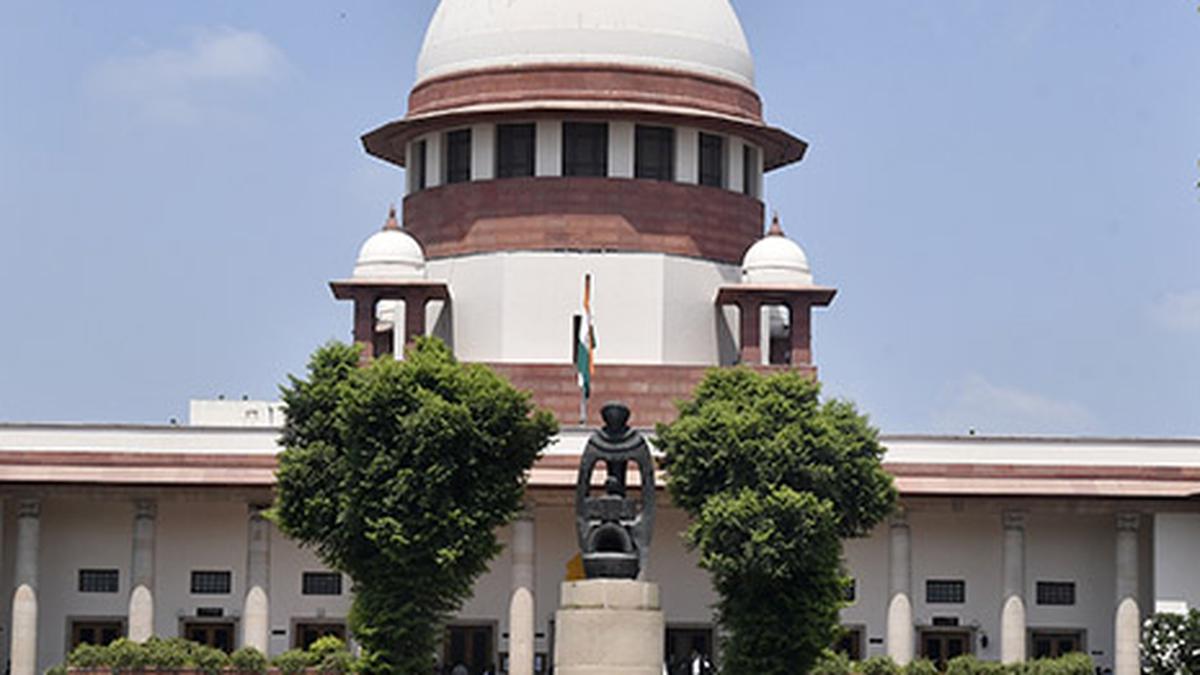
SC asks govt. whether PM Cares’ benefits given to COVID orphans can be extended to other parentless children
The Hindu
The three-judge Bench was hearing a PIL petition filed by Poulomi Pavini Shukla in 2018 when she was a law student.
The Supreme Court on Friday asked the Centre whether benefits given under the PM Cares Fund to children orphaned in the COVID pandemic can be extended to other parentless children.
“You have brought out a policy rightly for COVID orphans, now you must extend it to everybody. An orphan is an orphan, irrespective of whether the parents died in a road accident or due to an illness… You are attending to the condition, not to the parentage,” Chief Justice of India D.Y. Chandrachud addressed the Union government, represented by Additional Solicitor General Vikramjit Banerjee.
The three-judge Bench was hearing a PIL petition filed by Poulomi Pavini Shukla in 2018 when she was a law student.
“The matter has been pending for the past five years. I filed it as a student, I have finished my law and am married now,” Ms. Shukla said.
“We will see what the government plans to do,” the Chief Justice responded.
Advocate Prashant Bhushan, who also appeared in the case, said orphans should also be made eligible to the 20% reservation allotted to children belonging to the economically weaker sections (EWS) in private school admissions.
The court said the government could include orphans, especially those from socially and educationally backward circumstances, in the category of “children belonging to disadvantaged groups” under the Right to Education Act, which mandates free and compulsory education.

“Writing, in general, is a very solitary process,” says Yauvanika Chopra, Associate Director at The New India Foundation (NIF), which, earlier this year, announced the 12th edition of its NIF Book Fellowships for research and scholarship about Indian history after Independence. While authors, in general, are built for it, it can still get very lonely, says Chopra, pointing out that the fellowship’s community support is as valuable as the monetary benefits it offers. “There is a solid community of NIF fellows, trustees, language experts, jury members, all of whom are incredibly competent,” she says. “They really help make authors feel supported from manuscript to publication, so you never feel like you’re struggling through isolation.”

Several principals of government and private schools in Delhi on Tuesday said the Directorate of Education (DoE) circular from a day earlier, directing schools to conduct classes in ‘hybrid’ mode, had caused confusion regarding day-to-day operations as they did not know how many students would return to school from Wednesday and how would teachers instruct in two modes — online and in person — at once. The DoE circular on Monday had also stated that the option to “exercise online mode of education, wherever available, shall vest with the students and their guardians”. Several schoolteachers also expressed confusion regarding the DoE order. A government schoolteacher said he was unsure of how to cope with the resumption of physical classes, given that the order directing government offices to ensure that 50% of the employees work from home is still in place. On Monday, the Commission for Air Quality Management in the National Capital Region and Adjoining Areas (CAQM) had, on the orders of the Supreme Court, directed schools in Delhi-NCR to shift classes to the hybrid mode, following which the DoE had issued the circular. The court had urged the Centre’s pollution watchdog to consider restarting physical classes due to many students missing out on the mid-day meals and lacking the necessary means to attend classes online. The CAQM had, on November 20, asked schools in Delhi-NCR to shift to the online mode of teaching.









